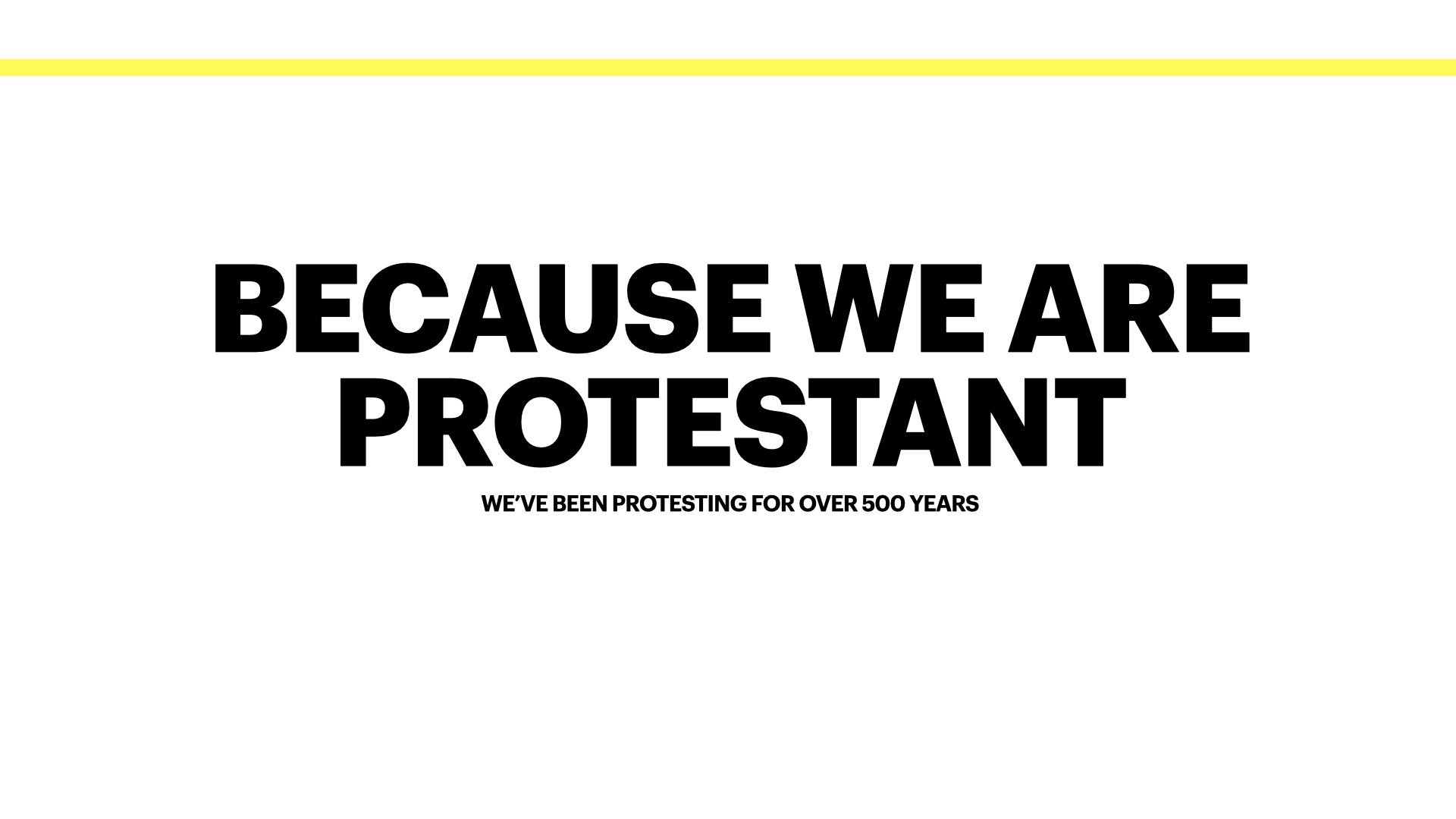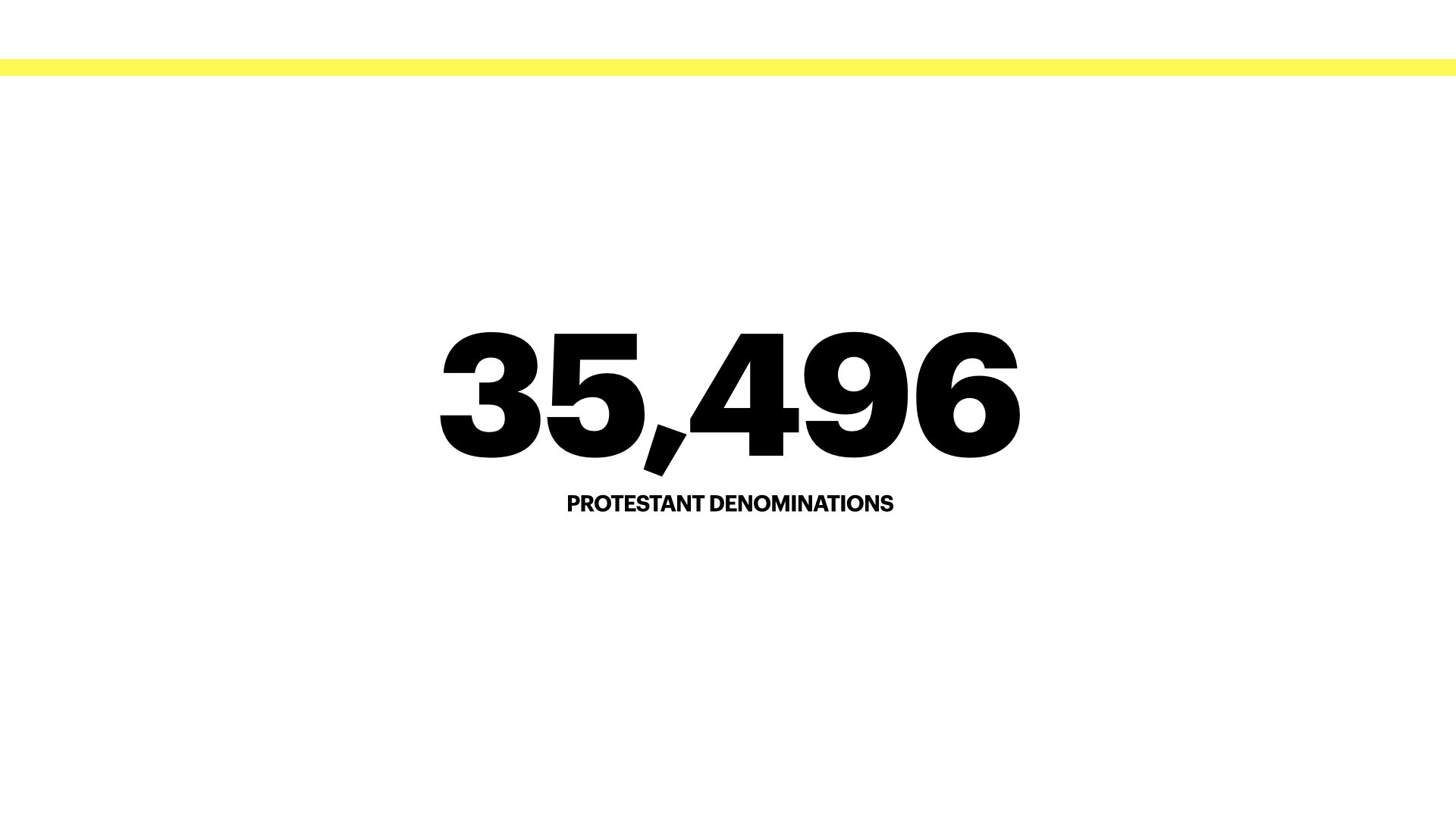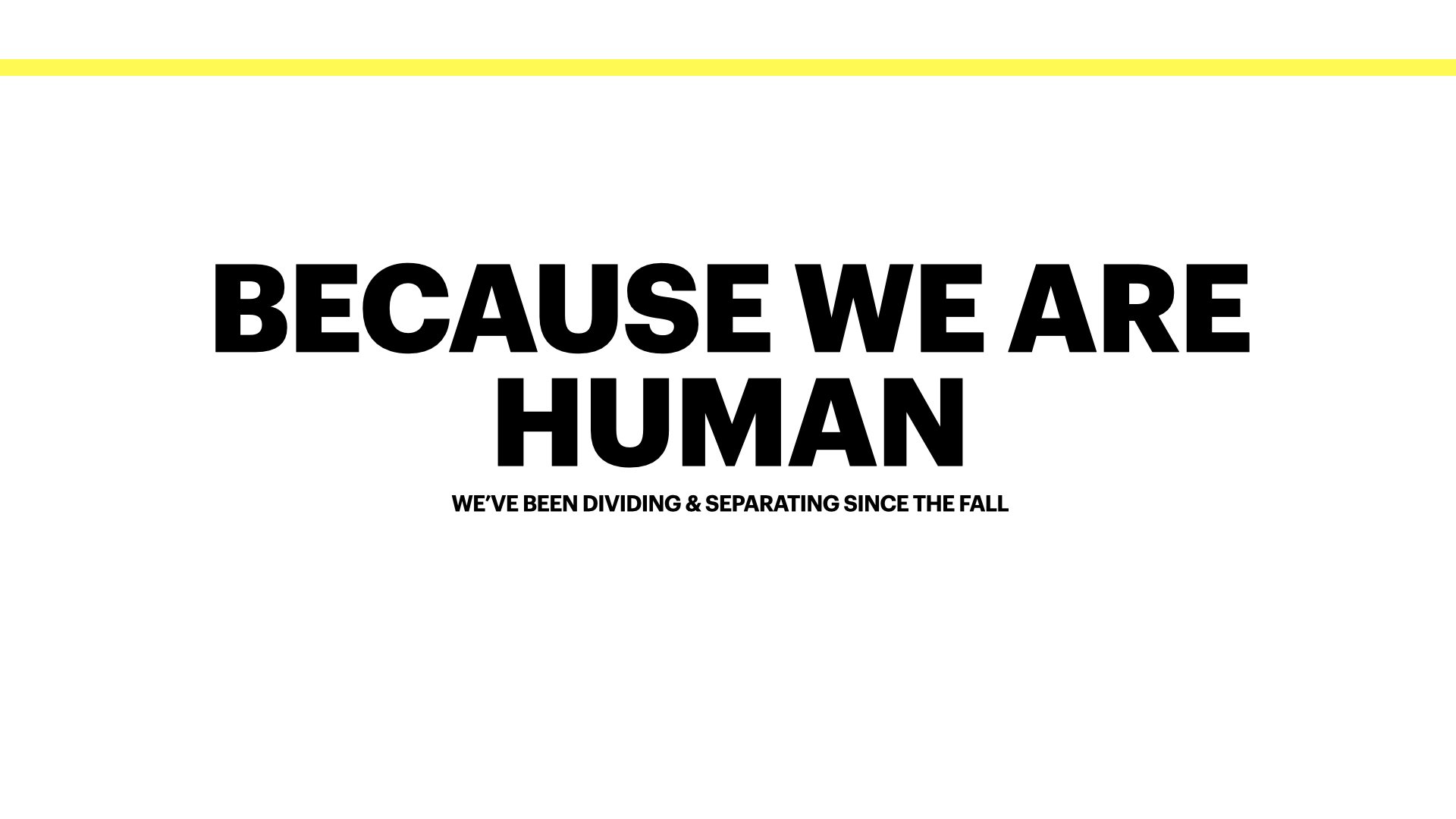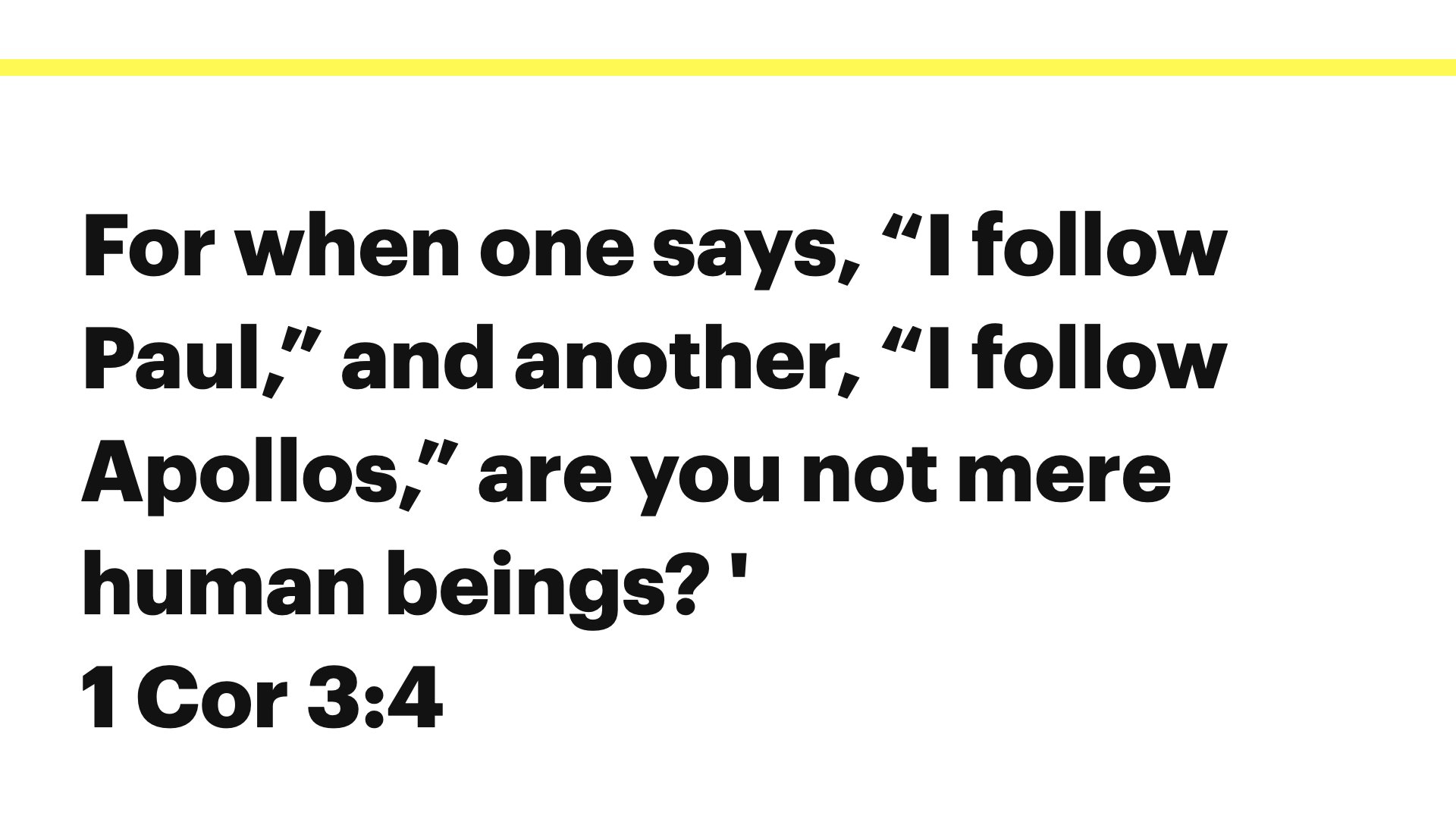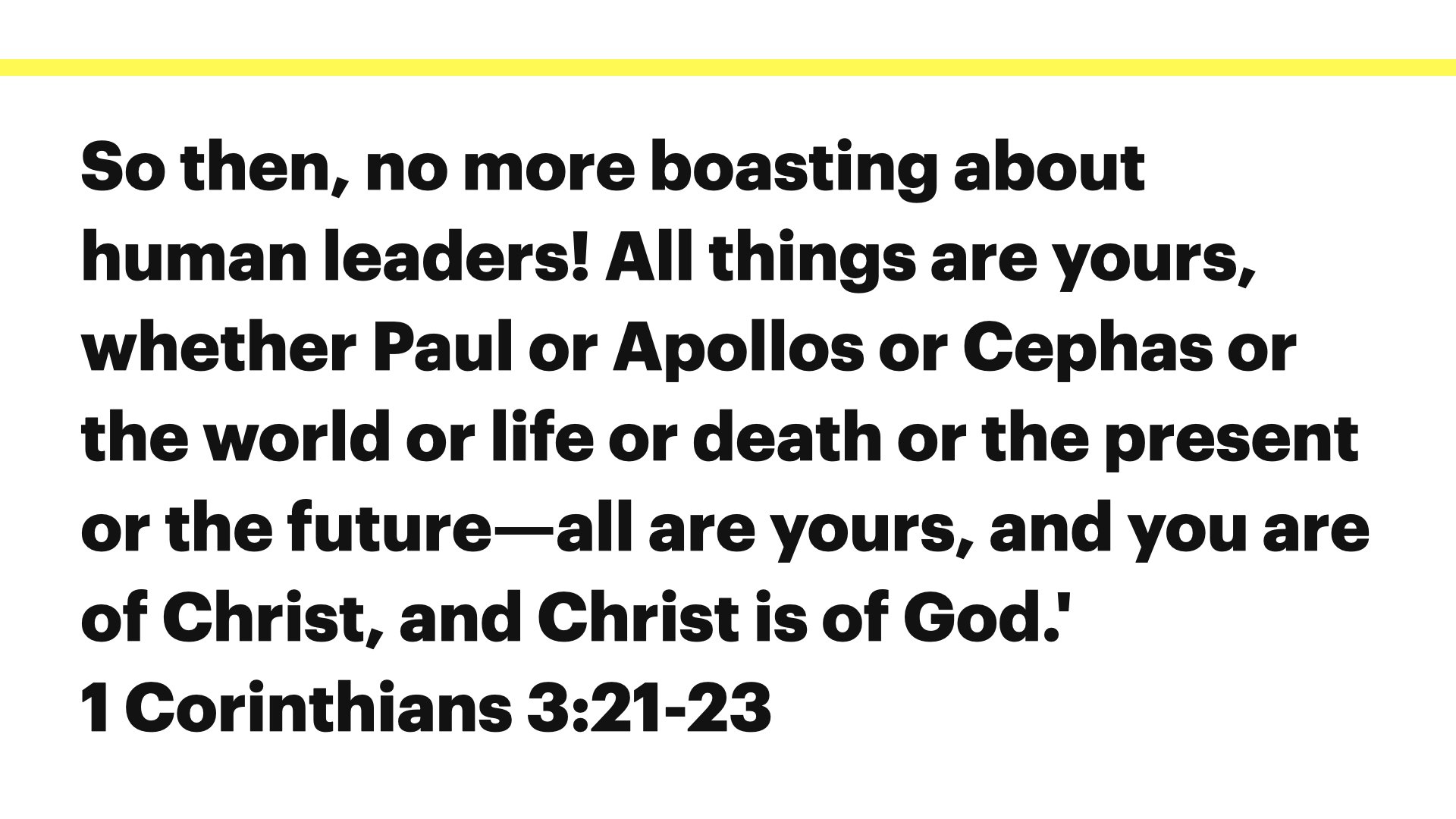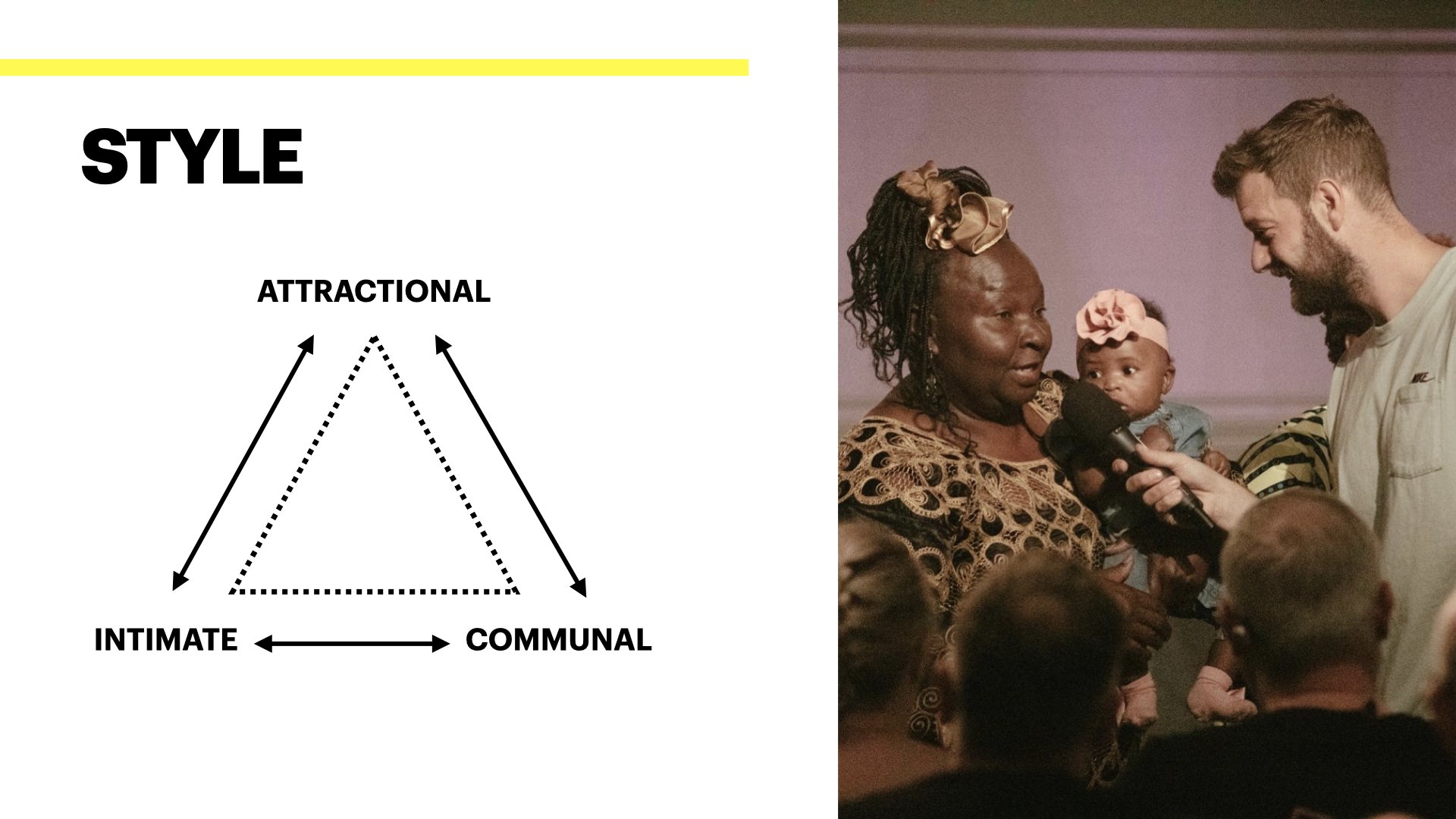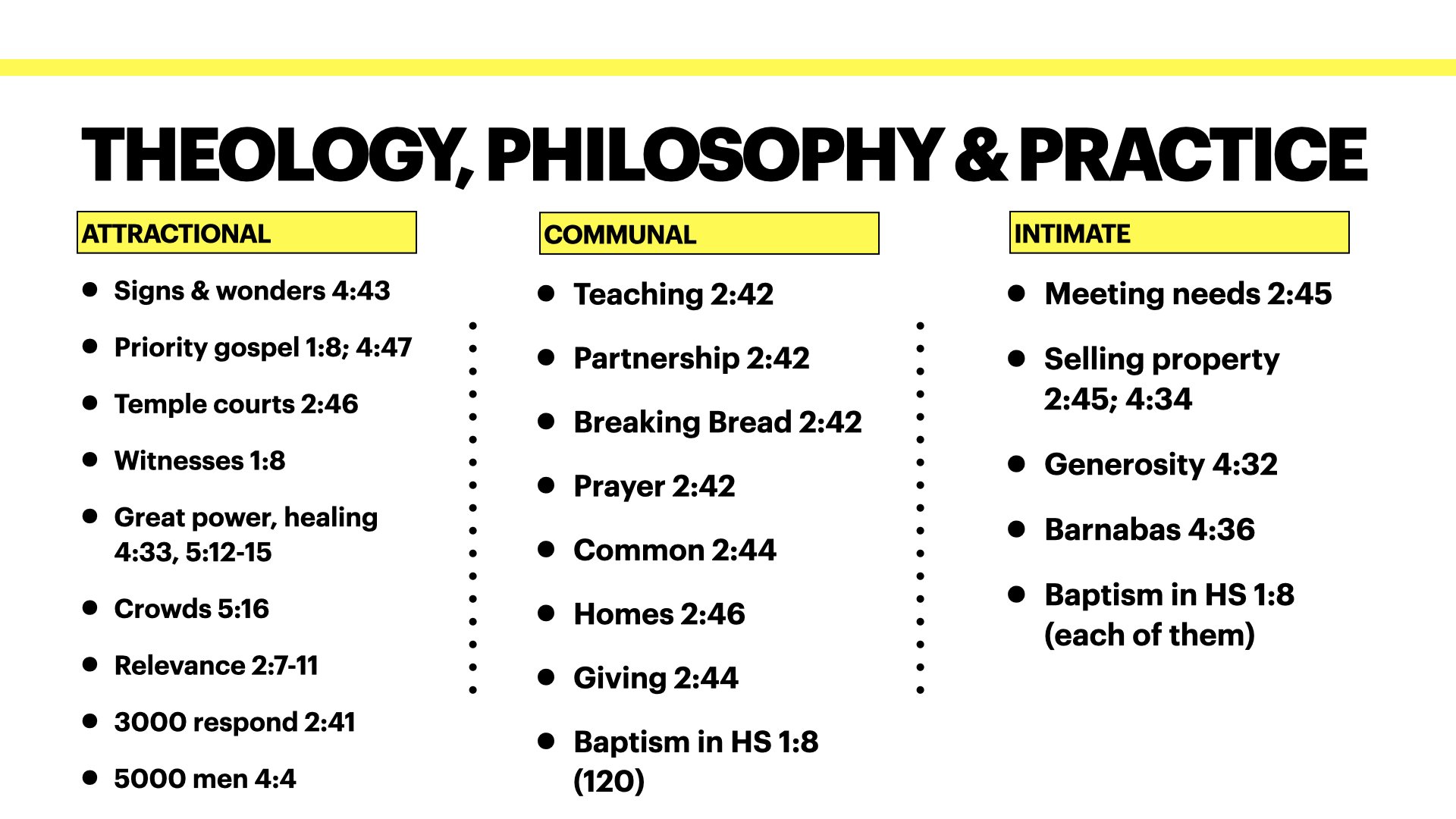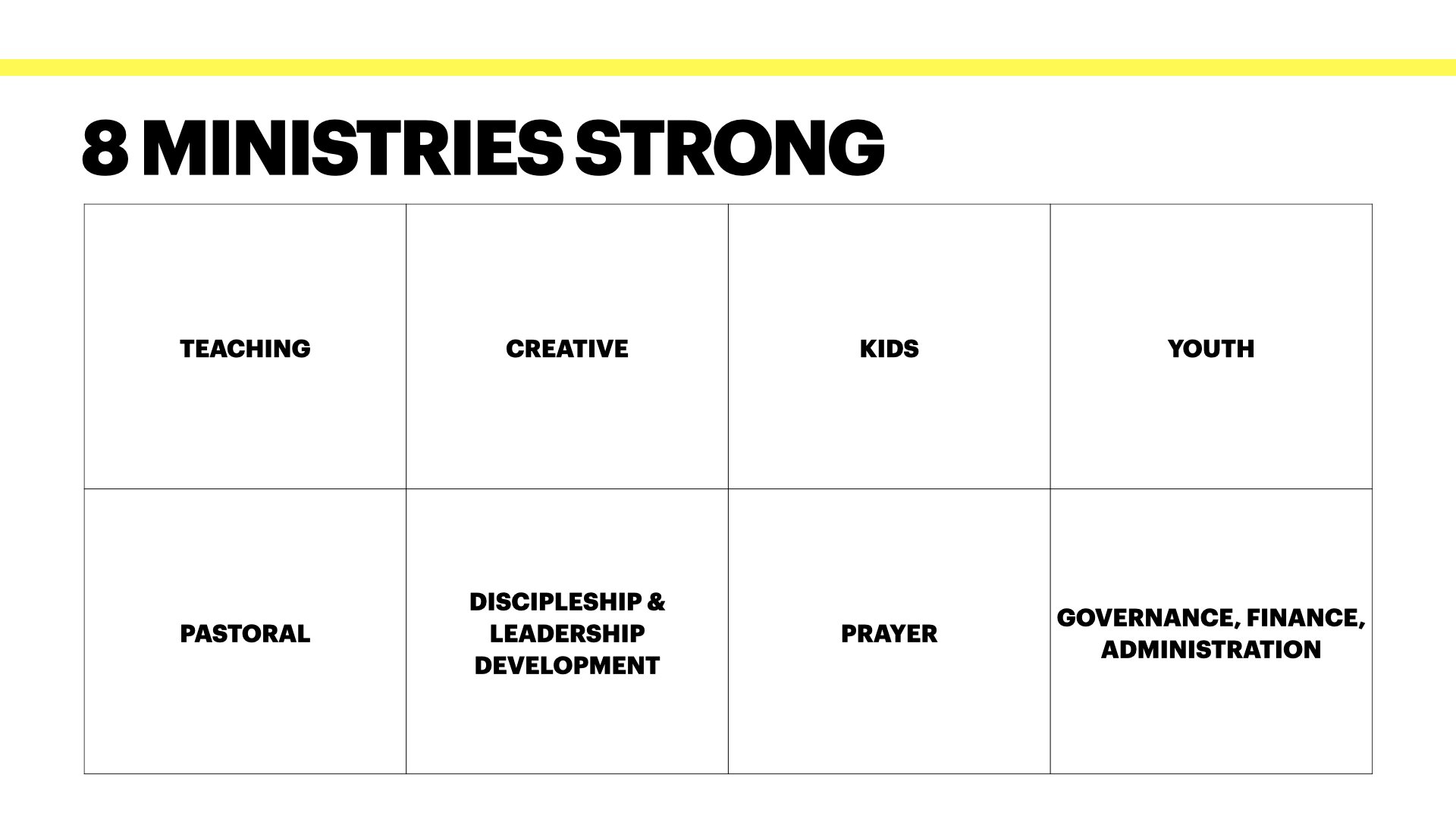CEP SEASON TWO EP: 26 - WITH GUEST PAUL BENGER
By Dave Mckeown and Nathan Benger
The Church Explained podcast is a conversation to help grow your leadership, develop your team and build your church. Your hosts will be Dave Mckeown and Nathan Benger. We talk about all things leadership with key team players from IKON Church and other guests during each show.
Welcome to Season 2, Episode: 26 of the Church Explained Podcast with guest Paul Benger
In part one of our conversation, Paul begins to unpack what it means to me to be an integrated church and why every church leader needs to pay attention to this.
SHOW NOTES
FULL TRANSCRIPT
CREATED BY AI - SO NOT 100% accurate.
David Mckeown 0:00
Well, welcome to the church explained podcast a conversation to grow your leadership and build your Church.
David Mckeown 0:14
I'm Dave McKeown.
Nathan Benger 0:15
And I'm Nathan Benger. And we're the host on the church explained podcast and today, yeah, we're joined again. It's been a while lol badger, who is a lead Pastor of IKON Church. And so Paul, why don't you tell us? I mean, it says here what you've been up to since you were last on but it's been a while. So why don't you tell us what you've been up to? in that interim?
Paul Benger 0:38
I guess a lot really. I can't remember when the last time I was on but we've both as a Church and, you know, ground level network of churches, which I lead. We've had lots of stuff like leaders, conferences and different things going on. Personally, I've been up to trying to become a better golfer, but that's not why it's not working. Class.
Nathan Benger 1:01
What we score on Monday.
Paul Benger 1:03
Let's not mean and then also doing a little bit barbecuing. Oh, bit smoking.
Nathan Benger 1:11
Smoking, but barbecue, not smoking. Okay. Okay. Well, just to
Paul Benger 1:16
clarify that meat. So I've been enjoying that. I've got some successes, and I've had some that weren't as successful. Yeah, I'm enjoying the enjoy the journey.
David Mckeown 1:27
And what's your biggest, biggest success on that?
Paul Benger 1:30
My biggest success, I think was I smoked what they call a Thor's hammer. Which is the Shem Shem. Bone and meat and massive pieces of beef. Beef. Yes. And that would be the biggest success, I would think. Yeah.
David Mckeown 1:45
Well leave your failure. Yeah. And I'll tell us now, anything else you've been up to? Sometimes, you
Paul Benger 1:53
know, I've not done any painting. Oh, no, I've not done any any painting. I have got a painting on order. But I have to fit get into feel I have to feel for it. Right. Get a good job. Yeah, person's not in a rush. So
Nathan Benger 2:09
there's no deadline, no deadline? Well, you've been recently, you've been talking to our staff and team about this idea of the integrated Church. And you've kind of titled it a post pandemic vision for the Church. So on this episode, we kind of wanted to take a deep dive into this, what does that mean? And also how it can help churches navigate this season. So I wonder if you could just give us like a snapshot of what that looks like. What does it What do you mean by an integrated Church?
Paul Benger 2:45
Well, maybe if I start with where it got born out on the idea, so like, 2020, here in the UK, and I know we've got listeners all over the world. But in the UK, we got locked down because of the pandemic. And churches in that period. It will lots of lots of noise, I call it lots of ideas, lots of thoughts. We need to focus more on discipleship, we need to think more, the future is communal, the future smaller. Lots of love. There was lots of noise around things like you know, the mega Church, they're the mega churches, oh over attractional Church is over, I'm done with attractional Church, people were saying, et cetera. Now, I was just kind of listening to all this noise around in the Church. And for me, you know, there were three areas where people were talking, like Church being attractional, that was being dismissed quite significantly by a lot of voices, significant voices. Then there was Church, the future of Church should be communal, the community side they used, they some churches looked at, I think it's called the Dunbar rate, which is like up to 150 people is like a communal group, an effective communal group. And then there was the intimate the smaller group and lots lots of noise was around the futures communal and the futures, intimate, etc. And for me, I was thinking, why do we have to choose? Yeah, why do we have to choose? And so, you know, I began to just play I kept quiet for quite a while for about 18 months, and I just began to think through, there's this sense of the Church being attractional, communal and intimate. And as I heard people talk about it, I thought, well, yes, we want the Church to be communal. Absolutely. groups that are working and have a size that work but and we want it to be intimate, where there's that discipleship and closer, closer knit that personal, real personal connection, potentially for people. But also I couldn't get past the fact that on the day of Pentecost, when the Church is born, 3000 people are added. So there's something large and attractional about the Church as well and throughout History, you know that that's been 2000 years of the church's history has been a balance, I guess if that's the right word of all three. So I wanted to come back to that. Why do we have to choose why? Why do we have to, you know, swing from one thing to another? Why do we? Why do we have to dismiss something? Because we're emphasising something else? So that's where the idea of the integrated Church? Yeah, let's have it all came from
David Mckeown 5:29
Yeah. I mean, that's very powerful and very time. And I think for lots of churches who are listening, because I guess, through them had dynamic and even coming out of it, a lot of choices have chosen to go for either one model? Yeah. I don't know. That was the big tension. You were thinking through, like, you know, what, why are people choosing? And you you brought some, I think, some insights to us as a staff team and a group of leaders around why that was, do you want to mention maybe a little bit about why people are choosing?
Paul Benger 5:58
Yeah, yeah, I mean, one of them, like, so. I think one of the one of the challenges I faced as I listened was, it wasn't that people were just saying we want to emphasise communal, intimate. It was that they were dismissing other views. That was the one leaving idea. Yeah, it was like we're done with megachurch, or we're done with attractional. Church, or we're done with this and that, and it was almost like a dismissing and downgrading and a down talking of others. And I didn't like that. And that's so I began to ask the question, why do we do that? And I mean, the first is, I say this with a little bit of a smile while we, we do it because we're Protestant. I mean, you know, we're in a Protestant tradition. 500 years ago, of course, thankfully, Martin Luther protested against the, you know, the indulgences that were happening in the Catholic Church. And he nailed his thesis 95 thesis to that door in Wittenberg was that, and, and, you know, the Protestant Church, in many ways was born out of that. But it's interesting, up until that time, there was like almost two strands of the churches, the Orthodox Church and the Catholic Church. Since that time, we've kept protesting and created. When I first did this research, it was 35,496 different denominations. So one reason we do this one reason that if I'm emphasising this I have to dismiss what you're emphasising is that because we're in a tradition that protests, we protest, whatever it whatever it is, but the other reason is because we're human. Yeah. And since the fall as human beings, we've been in that blame game and that shame game, where, you know, Adam blames God, that woman you gave me blames the woman, the woman, he's naked and ashamed, and his idea and so he's not got this real, is relationship with God. Right. It's not God's relationship with Himself. Right? Is not got his relationship with the woman and others. Right. And he's not got the relationship with creation, right? Yeah. And, and so because of that humanity, we always look to divide rather than unite. And you know, there's a there's an instance of this, which I've used in some of the teaching. And in the early Church in the book of Corinthians, where people says, I follow Paul, I follow a Paulus another. I follow. see, first Peter. And Paul says, when you do that, you're just being mere human. You're being human beings, he even links him back to the fact that, that humanity that fallen humanity, and his answer to that is, he says this, it's in one Corinthians 321, to 23 says, no more boasting then about human leaders. All things are yours, whether it's Paul or policy fast, whether it's life or death, the world, the present, or the future, it all belongs to you. And you belong to Christ, and Christ belongs to God. And so he uses this, and it's all ours. And that really is the foundation for me thinking, well, if we're going to think about intimacy, in Church, yeah, we want to see intimate intimacy, we want to see discipleship, we want to see people really connect with other people. We want to see communities that work when you know, you know, and if the optimum size is 151 20 to 150, then we want to see that but we also want to see 3000 people saved on the day of offence, because we want to see, you know, when people say the day then maybe Church is over, I just think we need more large churches to impact and influence communities, towns, cities, where we live. So isn't it all ours? Yeah, that's my basic premise, I guess in there.
Nathan Benger 9:55
So obviously, we're talking about these three kind of strands and People pick like, it's either this or it's that. And, you know, in even in those verses, it's all yours, that we want to have all of those things. So, I guess, for Church leaders and people who are thinking, you know, I'm just thinking through churches that would say, Oh, this is our focus now. I guess for a lot of churches, they would go, Well, this is it and dismiss the others. Is there a better response around the idea of the you know, because many times when people choose that they dismiss churches that are doing the opposite? Sorry, if you got a bang there, I'm using my hands to talk here. But they dismissed the opposite. So is there a better response as the Church?
Paul Benger 10:45
Yeah, and I think that for me, the better response is, don't dismiss. Yeah, so I'm, instead of protesting what can we celebrate? So yeah, I recently visited a Church that was in our network. It's in a small village. I mean, it literally has two buses that come into the village and go out the village has one in the morning. And then that bus comes back in the afternoon and goes out. I mean, I literally and it's Church. And their focus is communal, you know that, in that village, they're never going to be a mega Church is, you know, is what defined is making sure. But they are doing so much in the community. They're like the centre, they're like the hubungan community, so many things are happening in the building, that they have their services, you know, the percentage wise the number of people from that community attend the Church will be far greater than the percentage of people that attend any of our campuses as IKON Church. And so they're always their focus is going to be the communal and the intimate. And not so much the, you know, the the attraction, all in the sense of the mega Yeah. And I want to celebrate that, yeah. And I want to celebrate that now what would be wrong for them was, would be to dismiss the mega Yeah, the big, the attraction or the large, which they, as a Church, they don't do. And so I think the better response is to have that sense, what's God calling me to do? Focus on that, move that forward, but at the same time, celebrate what God is calling other people to do? Great. And and I think if we, if we could do that within the Church, you know, and well, maybe we'd have to stop some conferences, because some of our conferences are like, not more about what God is saying to us to do. They're more about dismissing what God is telling others to, do you know what I mean? I just would love to see the Church rise up with a sense of celebration, and support, and prayer for one another care for one another. And just back to that, it's all ours. It's all it's all ours. But even in a communal, in a Community Church, like I've just described, they want to be attractive to their community. So you know, the Mecca might be off the table, but they don't want to be on attractive. And that's the key really isn't. I mean, what's the opposite? Exactly? Yeah. So even there, it's all there's even the attraction or relate to them?
Nathan Benger 13:24
Do you think that's because we've used these words attractional. And we've linked them to a picture. Yeah, and a view of what that Church looks like, rather than rather than a context of where we are. So we were using the example of that Church attractional. Yeah, in that context, looks very different to attractional in a big city. So so it's not that we're not attractional it's just that how we've painted the picture of this is what attractional looks like.
Paul Benger 13:55
Yeah. And I think sometimes that is, we don't think through, we don't think through our thoughts, our words and our ideas. So for example, igvault can it's a bit simplistic, but it's not. It's not too far away from the truth idea that some people think and attractional Church is a Church with an LED screen and a smoke machine. People write articles against smoke machines. What's the smoke machine ever done? What's the smoke machine ever done to offend you? Yeah. And you know, we all know what they're, they're getting that I guess, in some of that, but people also wrote wrote articles against, you know, back in the day against stained glass windows. Yeah. And I read recently, in fact, I wish that brought this quote with me. For this I'd forgot I'd forgotten about it, too. We're just talking. I wrote recently, a paragraph where some someone was writing against modern music, modern songs and Next Saturday in Church, and it just sounded like somebody was talking today against like modern worship, contemporary worship kind of thing. But they were they were criticising Isaac Watts, wow, like years ago, and like not just 1020 years ago, 100 years, 100 years when they were writing back then so people have always done. Always, always done that. And so you're absolutely right. attractional in different settings looks very different. But what I think we've got to think through what we say and how we approach things more, because attract and being attractive is not about having a landlady screen, or a smoke machine or large auditorium. You know what I mean? But maybe those things, it could be those things, could be those things, but it's actually wanting to be a Church that can be relevant to reach people. And, and in that we're not compromising, you know, one of the things I've been saying, you know, through this teaching is we want to take, we take it as read that we are, you know, spirit filled people, we want to be spirit filled, where that we want to reach out communities, we Bible, believe in, etc. So we don't want to compromise any of those core values, if you live other during the life of the Church and have been for 2000 years. But we want to do Church in a way that is relevant to the people where we live the generation that we're a part of.
David Mckeown 16:35
Yeah, I mean, a great, great answer and great thoughts around that idea of having it all. Yeah, maybe something around just exploring that together. Because, you know, one of the things we've been saying really, and you've been said even to our staff and team, it's like often people will criticise they will, you know, polarise one from the other. Yeah. I suppose I'm thinking of a lot of listeners out there. Maybe people are listening in and think, Well, you know, we made a big shift during during the pandemic, we were this way, we went that way. What have we done? Because there's been a lot a lot. There's a lot of churches who have retracted, they've gone down one route, and then they realise actually, you know, we should have just stayed where we are. Yeah. So we're gonna we're just trying to think even in our contacts, or maybe Church, the seven of us. There is a better response you've been sharing. But But how does that work together? Thinking of the three things working together? Yeah. What's your insights on that
Paul Benger 17:29
poll? Well, I think I think you're right in saying I think what I've been trying to dig into is what is a better response? Yeah. There may be to some of what I saw, which were big swings and big shifts pendulum, the fact that pendulum and also on ditching? Yeah, you know, so, you know, we we heard of churches, were never going to meet on Sundays, again. I mean, they retracted, retracted pretty quickly from that, when they realised lots of people, you know, weren't showing up more and more than what most churches have experienced, most Church have experienced because people
David Mckeown 18:03
were in that routine of time. Before they were and people come back to that point. Yeah.
Paul Benger 18:07
And so I think the better you know, the better risk response for me has been to celebrate the celebrate all of it into in terms of, you know, I looked at the book of Acts, I dug into the bookmarks a little bit and I did something for us stuff where I began just in the first few chapters of the book of Acts, and some of those summary verses to look at, has has parts of these. This story of the Church being born and being followed the spirit, where the Church is clearly attractional but then there's these other moments where the Church is clearly communal, and also where the Church is absolutely intimate. And, you know, I did a little table little grid. You know, lots of people have said it's been really helpful. So you know, things like on the attraction or there were signs and wonders, yeah. 3000 people are added on the day of Pentecost. And then it says a few days later, there's now 5000 men they met in you know, Solomon's colonnade, so they're out in the open Jesus says to them, you receive power and you will be my witnesses, you know, you're gonna go out, crowds are mentioned often and then there's even through the baptism of the Holy Spirit. There's this relevance because the crowds say, as they're speaking in tongues filled with the Holy Spirit that crowds say we hear them clear in the wonders of God in our own language. And so the Holy Spirit that first thing the Holy Spirit does is makes them make them relevant makes the message understandable for the people who are in that context in that moment, and the nations that are around so there's all this attraction an element just in the you know, the early Church the Lord's add in daily the scripture say to The Church those who are being saved, there's something something going on. But then there's there's communal aspects of the Church as well. They devote themselves to the apostles teaching, they break bread from house to house, they, you know, it says in attitude, isn't it 42 That they devoted themselves positive teaching and breaking bread, to fellowship, and to prayer. There's this community aspect going on. In the life of the Church, it talks about how they shared things in common they no one had needs, because they wish they were sharing amongst them they were given. And then, you know, the thing I loved about that experience of them receiving the baptism of the Holy Spirit, there's 120 of them all get filled with the Spirit, all speak in tongues, it's a communal, you know, it's a communal experience, where they all in that moment, are filled together. But then they've not just got the attractional and the community, you've also got the intimate, where individual needs are being met, where individuals are selling property and bringing the money to the apostles feet. I mean, imagine what has going on intimately in the heart of a person who decides, I'm going to sell these properties. And I'm just going to give it all, you know, to the work of God. In this this moment. There's generosity. I mean, there's there's Barnabas and then coming back again to the baptism in the Holy Spirit says they were all filled and spoke with their tongues, but then it says tongues of fire rested on each of them. So it was communal, but it was personal. Yeah, it was intimate as well. So as I read through those early chapters that I ate for me, I could see all three, I could see attraction on so I kind of have to ask stuff I've said we want to be as an attractional as we can be, we want to ride that you know, baby as far and as fast as we can, and spend as much money on that as we're able. But we also want to be as communal as we can be want to ride that baby as far and as fast as we can and, and baby mountain not be the right word, but he's helping me articulate it and spend as much money on being commune as we can. And we want to be intimate we want see the intimate Yeah, work of discipleship of, of groups and individual transformation. And we want to write that as far and as fast as we can, and spend as much money as we need to on that as well. So for me, I've quoted the Queen, not Queen Elizabeth, who recently passed away but the rock band Queen, and they said, I want it all. Yeah, and I want it now. But so it's that sense of it's not making light of it. But that sense for me that it's all ours. Let's not polarise certainly, and let's not dismiss other people who might have a different emphasis. Let's celebrate celebrate our diversity, and let's celebrate our individual callings and our unique contexts and positions. But actually, let's, let's realise that it's all ours. It's all ours.
Nathan Benger 23:08
Yeah, I mean, it's really powerful for our, our staff and our team to go through that, because I guess, like you said, right at the start, we can have this either or mentality, we can have these big swings. We, you know, I think lockdown COVID, all of that emphasised a lot of those. And did that. So? So just thinking on that? How do you think Church leaders can begin to apply that in their setting? What would be maybe some steps or some things that they could begin to do?
Paul Benger 23:39
Well, I think first of all, to have a real clarity around the vision that you see for the Church in real clarity, the Church, the Church, I see. The Church God's God sees as becoming, and, and follow that with a passion and if that's an emphasis in this moment, in this season, in these next five years, for the Church to not be embarrassed about that, to not be uncomfortable with that. And even as I'm saying, you know, we should focus on everything if if someone feels we really feel you know, call to develop the discipleship side of our Church right now. I want to celebrate that go for it. It everything emphasise, take that step you know you and when you take a step you shift weight, yeah, but the whole body comes with you. You take everything else with you. But you do shift weight and so shift emphasis and and go for that. So I think Church leaders can do that. But we don't have to we have seen in the UK don't we throw the baby out with the bathwater, and we don't have to throw the baby out with the bathwater and also celebrate others. And I mean, the biggest sadnesses for me the biggest tensions where I really felt that the way some people were communicating it was if you're not hearing this You know, this message that we're saying, and I think everybody was hearing stuff around discipleship, but if you're not hearing that, as we're hearing it, and if you're not taking the steps, the radical steps that we're taking, you've missed the Holy Spirit. And I really disliked that. And because I don't think that's helpful to the Church at all, I don't think it's helpful for pastors, I don't think it's helpful when we go on social media. And we're not just getting a message, a positive message about what God is calling, you know, an individual or a Church or a community or even a network to do. But we get a message where that is communicated through the lens of and if you're not hearing it, you've missed it. Because this is what the Spirit is saying. And he's not saying anything else. So that's the that my encouragement to Church to Church leaders is, first of all, celebrate everything that's going on, and celebrate what God's calling people to do where you see the Spirit at work. You know, let's celebrate that together and celebrate people's passion, celebrate people's callings. Celebrate people's steps that they're taking to pursue God. And and do that, you know, do that yourself. Be confident and clear about what God wants you to do. And, and take those steps.
Nathan Benger 26:26
I guess people can connect with you Instagram at Paul Benja. Yeah, that's the best way for people to connect. Yeah, best way. Yeah. Or bend. Yeah, yeah. Great. Well, that's been a wrap. It's been great to be together on this episode of The church explained podcast. Thanks for listening. And if you could rate review, share, subscribe. Wherever you're listening to this content, then please do that. Also, don't forget to head on over to IKON dot Church forward slash open and you can get access to loads of free content.
David Mckeown 26:59
Let me just say that going wrap up my IKON Open. We're having so many people hit the website. Just let listeners know. Like since it's launched last year, we've had probably over 55,000 people or leaders looking for content. So you could be one of them.
Nathan Benger 27:15
Yeah, exactly. There's loads of free content out there and a load of stuff for you and your Church. But that's it for now. It's been great to be together and we'll see you next time on the church explained podcast for a live
Transcribed by https://otter.ai
BONUS SLIDES OF INTEGRATED CHURCH
SHOW LINKS
FOLLOW PAUL AT @paulbenger
IKON OPEN - FREE CHURCH RESOURCES







